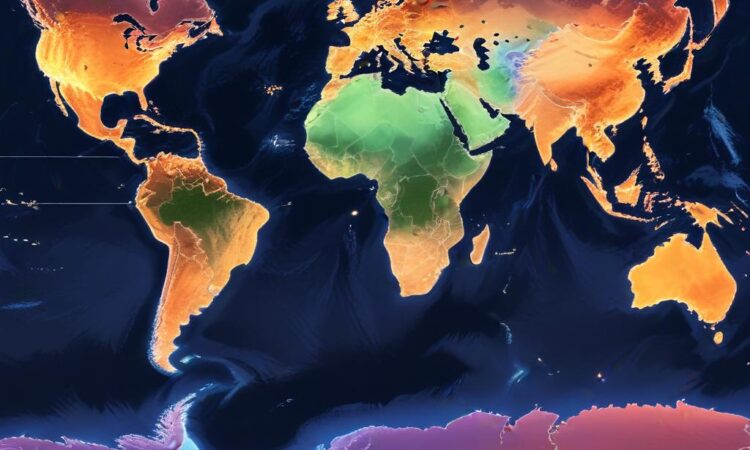Energy Prices and Geopolitical Instability
Continued geopolitical tensions, particularly the war in Ukraine, are significantly influencing global energy prices. This volatility is affecting inflation rates, impacting consumer spending, and presenting challenges for businesses across multiple sectors. Discussions around energy security and diversification of energy sources are prominent.
The ongoing conflict in Ukraine has dramatically disrupted global energy markets. Ukraine and Russia are both significant exporters of natural gas and oil, and the war has led to significant supply chain disruptions. The resulting scarcity has driven up prices, impacting consumers and businesses worldwide. This price surge is not limited to just energy; the ripple effect is felt across numerous sectors, contributing to broader inflationary pressures.
The impact on inflation is substantial. Increased energy costs translate directly into higher production costs for businesses, leading to price increases for consumers. This creates a feedback loop, where higher prices reduce consumer spending power, potentially slowing economic growth. Governments are grappling with balancing the need to control inflation with the need to support vulnerable populations affected by the rising cost of living.
Businesses across various sectors are facing significant challenges. Industries heavily reliant on energy, such as manufacturing, transportation, and agriculture, are particularly vulnerable. Increased energy costs erode profit margins, forcing businesses to make difficult decisions regarding production, investment, and employment. Some businesses are exploring ways to mitigate the impact of higher energy prices, such as investing in energy-efficient technologies or diversifying their supply chains.
The current situation has highlighted the critical need for energy security and diversification. Countries are actively seeking to reduce their dependence on single energy sources and suppliers. This involves investing in renewable energy sources such as solar, wind, and geothermal power, as well as exploring alternative energy sources like nuclear power. International cooperation is also crucial in ensuring stable and reliable energy supplies.
The geopolitical landscape is complex and unpredictable. The war in Ukraine is only one factor contributing to global energy price volatility. Other factors such as climate change, political instability in other regions, and shifting global demand patterns also play a significant role. Understanding these interconnected factors is crucial for developing effective strategies to manage energy security and mitigate the impact of price volatility.
The economic consequences of this energy crisis are far-reaching. Beyond inflation and business challenges, there are concerns about social unrest and potential political instability in countries struggling to cope with high energy prices. Governments are implementing various measures, such as subsidies and price controls, to alleviate the burden on consumers and businesses. However, these measures often have unintended consequences and can strain public finances.
Looking ahead, the outlook for global energy prices remains uncertain. The duration and intensity of the war in Ukraine, along with other geopolitical developments, will continue to significantly impact energy markets. The transition to cleaner and more sustainable energy sources will take time, requiring significant investments and policy changes. In the meantime, businesses and consumers will need to adapt to the challenges posed by the current volatility.
The international community is engaging in discussions on how to address the energy crisis. These discussions involve exploring various options, including strengthening international cooperation on energy security, promoting investment in renewable energy technologies, and improving the efficiency of energy consumption. The long-term solutions require a multifaceted approach that considers both the immediate needs and the long-term sustainability of the global energy system.
The current energy crisis underscores the importance of resilient and diversified energy systems. Countries need to invest in infrastructure to support the transition to cleaner energy sources and to improve energy efficiency. This requires significant financial resources, technological innovation, and policy support. The transition will not be without challenges, but it is essential for achieving long-term energy security and sustainability.
The impact of the energy crisis extends beyond economics. It affects social equity, national security, and international relations. Addressing the challenges requires a coordinated global effort involving governments, businesses, and civil society. Open communication, collaboration, and a commitment to sustainable development are essential for navigating the complexities of the global energy landscape.
In conclusion, the interplay between geopolitical instability and energy prices is a significant driver of current global economic uncertainty. The war in Ukraine has exacerbated existing vulnerabilities, highlighting the urgent need for greater energy security and diversification. Addressing these challenges requires a multifaceted approach that considers economic, social, and environmental factors. The path forward involves a complex mix of short-term mitigation strategies and long-term sustainable solutions. The long-term success will depend on international cooperation and a commitment to a more sustainable and secure energy future.
The ongoing situation demands continuous monitoring and adaptation. Businesses need to actively manage risk, explore alternative energy sources, and enhance efficiency. Consumers should be prepared for potential price fluctuations and consider ways to conserve energy. Governments must implement policies that balance affordability with the long-term goal of a sustainable energy transition. The challenge is significant, but the necessity for action is clear.
This complex situation requires a nuanced understanding of various factors influencing energy prices and global stability. Continuous monitoring of geopolitical developments, market trends, and technological advancements is essential for informed decision-making. Collaboration between governments, industries, and international organizations is critical for fostering a secure, stable, and sustainable energy future. The path forward will require innovation, adaptability, and a global commitment to a more resilient energy system.

